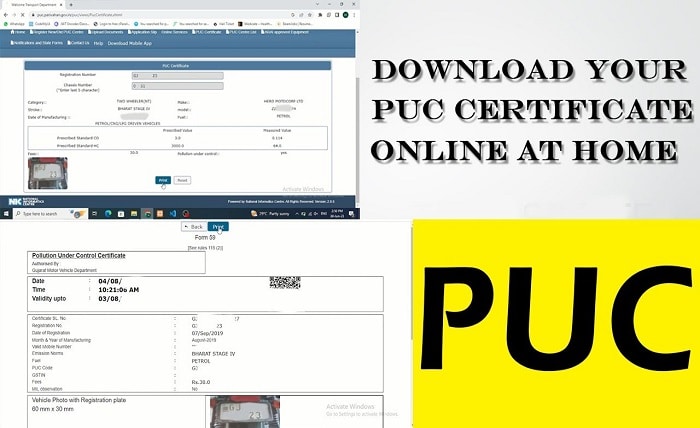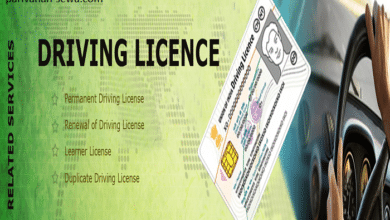Exploring the PUC Parivahan Sewa: A Comprehensive Guide

Introduction
The PUC Parivahan Sewa, or Pollution Under Control (PUC) Transportation Service, plays a crucial role in maintaining vehicular compliance with environmental norms. In this blog post, we will explore the various facets of the PUC Parivahan Sewa, detailing its importance, procedures, and impact on both vehicle owners and the environment.
PUC Parivahan Sewa
The PUC Parivahan Sewa is a mandatory certification service in India that ensures all motor vehicles adhere to the emission standards set by the government. This certification helps in identifying vehicles that emit pollutants beyond the permissible limits. By complying with these standards, vehicle owners contribute to a cleaner, healthier environment.
The Legal Framework
The legal basis for the PUC Parivahan Sewa is grounded in the Motor Vehicles Act, which mandates that every motor vehicle in India must have a valid PUC certificate. This section discusses the regulatory framework that supports the PUC system, including the penalties for non-compliance and the authorities responsible for enforcement.
Registration Process for PUC Certification
Registering for a PUC certificate involves a visit to an authorized PUC testing center. Vehicle owners must bring their vehicle for an emissions test. This part of the PUC Parivahan Sewa is designed to be quick and efficient, ensuring minimal disruption to the vehicle owner while adhering to environmental standards.
Emission Standards and Criteria
This section delves into the specific emission standards that vehicles must meet to pass the PUC test. It discusses the different criteria for various types of vehicles, such as petrol, diesel, and CNG/LPG vehicles, and how these standards are crucial for the PUC Parivahan Sewa.
The Role of Technology in PUC Testing
Technology plays a significant role in the PUC Parivahan Sewa, with advanced equipment used to measure emissions accurately. This segment explores the technological advancements that have been integrated into the PUC testing process, enhancing its accuracy and reliability.
Benefits of the PUC Parivahan Sewa
The benefits of the PUC Parivahan Sewa extend beyond compliance. They include improved air quality, enhanced public health, and increased awareness among vehicle owners about the importance of vehicle maintenance and environmental responsibility.
Challenges and Solutions
While the PUC Parivahan Sewa has many strengths, it also faces challenges such as fraudulent practices and lack of awareness. This section discusses these challenges and the steps being taken by authorities to address them, ensuring the effectiveness of the PUC system.
PUC Parivahan Sewa for Commercial Vehicles
Commercial vehicles have stricter PUC standards due to their higher usage and potential for pollution. This part discusses the specific requirements and testing frequency for commercial vehicles under the PUC Parivahan Sewa, emphasizing the importance of regular checks.
How to Maintain Your Vehicle for PUC Compliance
Maintaining a vehicle to meet the standards of the PUC Parivahan Sewa is critical for passing the PUC test. Tips on regular maintenance practices that help in keeping the vehicle’s emissions within the permissible limits are provided in this section.
Conclusion
The PUC Parivahan Sewa is an essential service for maintaining public health and environmental quality. By participating in this program, vehicle owners not only comply with the law but also contribute to a larger cause of reducing air pollution. Continuous improvements and strict enforcement of the PUC standards are vital for the success of this initiative.
FAQs
- What is PUC Parivahan Sewa? PUC Parivahan Sewa refers to the mandatory vehicular emission check service, ensuring that all motor vehicles meet specific emission standards to control pollution levels.
- How often do I need to renew my PUC certificate? Typically, a PUC certificate is valid for six months; however, a new vehicle’s first PUC certificate is valid for one year from the date of its registration.
- Where can I get my vehicle tested for PUC certification? You can get your vehicle tested at any authorized PUC testing center across India.
- What happens if my vehicle fails the PUC test? If your vehicle fails the PUC test, you must get it repaired to meet the required emission standards and then retest it within a specified period.
- Is there a penalty for not having a valid PUC certificate? Yes, driving a vehicle without a valid PUC certificate can lead to penalties, including fines and legal action as per the Motor Vehicles Act.




